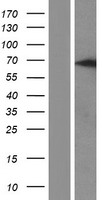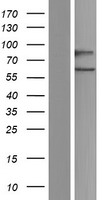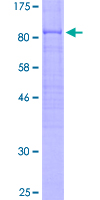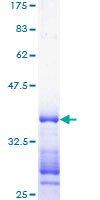order histories, retained contact details for faster checkout, review submissions, and special promotions.
Forgot password?
order histories, retained contact details for faster checkout, review submissions, and special promotions.
Locations
Orders Processing,
Shipping & Receiving,
Warehouse
2 Shaker Rd Suites
B001/B101
Shirley, MA 01464
Production Lab
Floor 6, Suite 620
20700 44th Avenue W
Lynnwood, WA 98036
Telephone Numbers
Tel: +1 (206) 374-1102
Fax: +1 (206) 577-4565
Contact Us
Additional Contact Details
order histories, retained contact details for faster checkout, review submissions, and special promotions.
Forgot password?
order histories, retained contact details for faster checkout, review submissions, and special promotions.
Cdc14 / CDC14A
cell division cycle 14A
CDC14A, a homolog of the essential Saccharomyces cerevisiae cdc14 gene, is a member of the CDC14 subfamily. The gene product has been shown to dephosphorylate human Cdh1 and activate APC(Cdh1), the anaphase-promoting complex that ubiquitinates mitotic cyclins and allows cells to exit from mitosis. CDC14A also has been shown to interact with interphase centrosomes and to regulate the centrosome duplication cycle. At least three mRNA variants of CDC14A have been identified. Dispruption of centrosome duplication by overexpression or downregulation of CDC14 has been shown to cause aberrant chromosome partitioning into daughter cells leading to genomic instability in mammalian cells. The CDC14A protein has been reported to interact with the tumor suppressor protein p53 both in vitro and in vivo and may regulate the function of p53. CDC14A has been mapped to chromosome band 1p21, a region that has been shown to exhibit loss of heterozygosity in highly differentiated breast carcinoma and malignant mesothelioma. Further, a 48-bp in-frame deletion in the cDNA of the breast carcinoma cell line has been identified, and loss of expression of the wild type allele in this cell line supports the possibility that CDC14A may be a tumor suppressor gene that is targeted for inactivation during tumorigenesis.
| Gene Name: | cell division cycle 14A |
| Family/Subfamily: | Protein Phosphatase , CDC14 |
| Synonyms: | CDC14A, Cdc14A1, Cdc14A2, Cdc14, Cell division cycle 14a, HCDC14, HCDC14a |
| Target Sequences: | NM_003672 NP_003663.2 Q9UNH5 |






If you do not find the reagent or information you require, please contact Customer.Support@LSBio.com to inquire about additional products in development.









